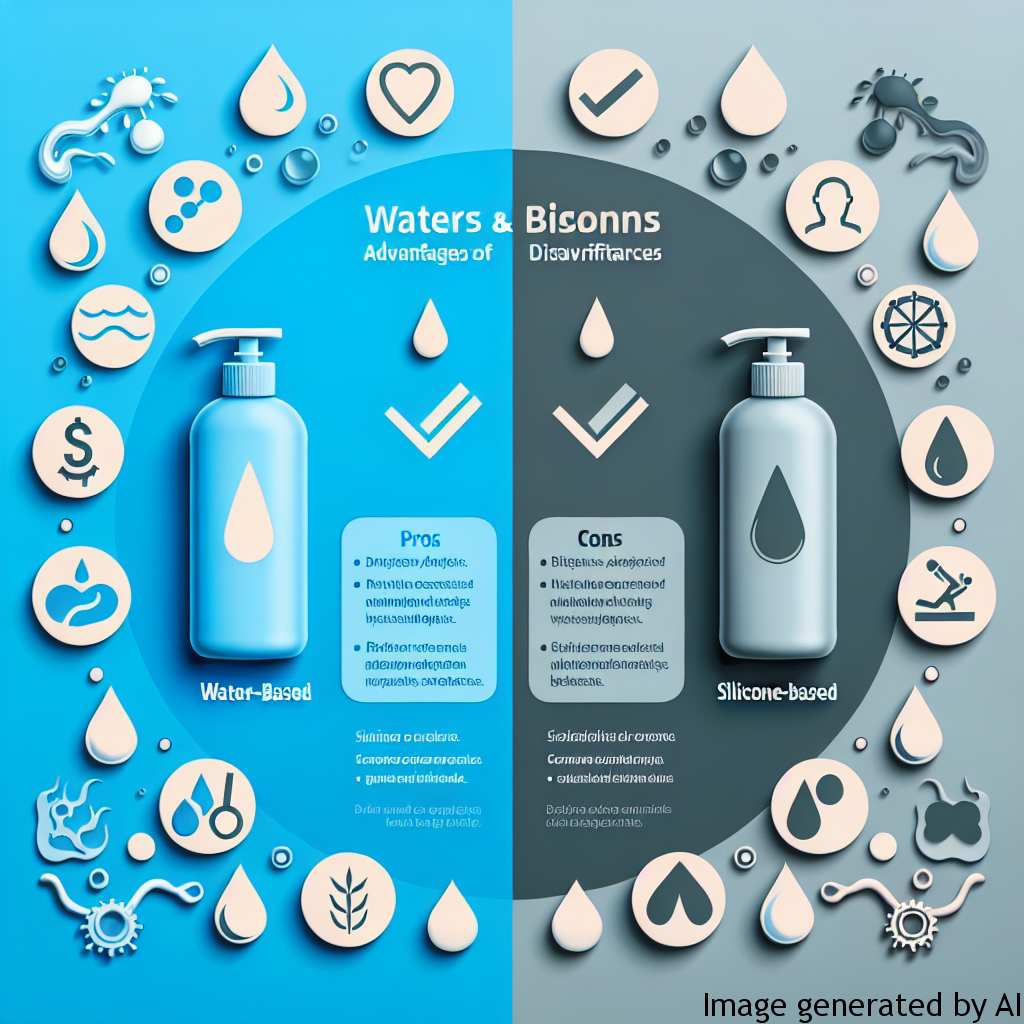Introduction
When it comes to maximizing comfort and pleasure during intimate activities, lubricants are an important factor to consider. Of the many types available, the two most common categories are water-based and silicone-based. Each of these types comes with its unique benefits and drawbacks. This article provides an in-depth comparison of these two lubricants, to help guide your decision on selecting the most suitable option based on the intended use.
Water-Based Lubricants
Pros
Water-based lubricants have earned popularity due to their wide range of benefits. One crucial advantage is that they are safe to use with all types of condoms and sex toys. They are also easy to clean off after use, making them less messy. More so, they have a comparable natural feel, and any inadvertent consumption isn’t harmful since they are non-toxic.
Cons
Despite their many advantages, water-based lubricants also come with a few downsides. The most distinct one is that they tend to dry out quickly, which can interrupt intimacy requiring re-application. Some may also contain glycerin which can cause yeast infections or irritation for some users.
Silicone-Based Lubricants
Pros
Silicone-based lubricants are waterproof and thus provide long-lasting lubrication when compared to their water-based counterparts. This makes them excellent for use in water environments such as the shower or bathtub. Further, they offer a silky-smooth feeling, and they lack glycerin, reducing chances of irritation or infection.
Cons
On the downside, silicone-based lubricants can potentially damage silicone toys, hence not the best choice for such play. Additionally, they can be more difficult to wash off, leaving a residue that might require soap and water to remove thoroughly. Lastly, they may stain fabric which can lead to some inconvenience.
Tips for Choosing the Right Lubricant
Deciding on which type of lubricant to use largely depends on the intended activity and personal preference. Water-based lubricants are the go-to choice for versatility, while silicone-based lubricants offer the best option for long-duration or water-involved activities. Always check the ingredients to avoid any potential allergens or irritants. Ultimately, it might require some experimentation to find the perfect fit for you.
Conclusion
Both water-based and silicone-based lubricants offer a unique set of benefits and drawbacks. With the right information at hand, individuals and couples can make informed decisions that enhance their comfort and satisfaction during intimate experiences. Optimal use of lubricants can significantly elevate the sexual journey, making them indispensable tools for intimacy.

